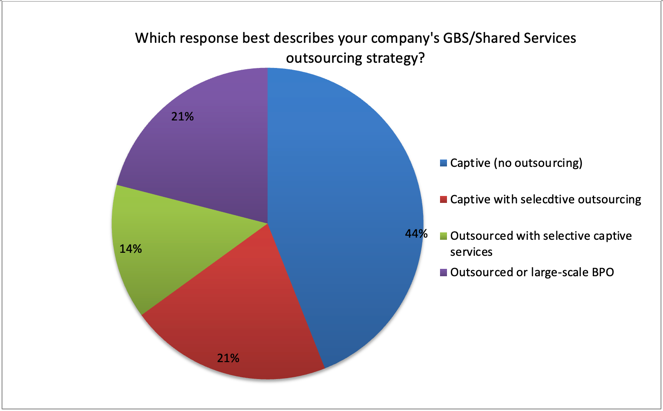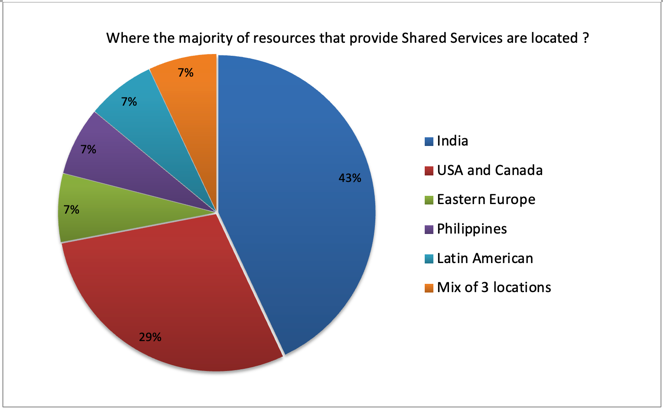Lessons Learned in Managing a Large-Scale BPO Relationship
Introduction
This report discusses a Peeriosity member company’s strategic partnership with IBM for Business Process Outsourcing (BPO) services, focusing on the company’s finance and accounting operations. The key points covered include the companies background as a spin-off from another large company, the establishment of a Global Business Services (GBS) organization called Finance Shared Services (FSS), and the decision to outsource certain transactional processes to IBM through a BPO arrangement. The presentation highlights the benefits of the BPO partnership, such as cost savings, scalability, and flexibility, while maintaining control over process design and oversight through the company’s global process leads and operational teams. The presenter also discusses the governance structure, delivery model, and geographic footprint of the BPO operations, as well as the continuous improvement efforts and future considerations for the partnership.
Company Experience
The Peercast feature presenter provides an overview of company’s growth, revenue, and market position, emphasizing the company’s significant expansion over the past decade.
The presenter discusses their GBS organization, called Finance Shared Services (FSS), which focuses on finance and accounting operations. He explains the evolution of FSS, including its establishment after the spin-off, the consolidation of various finance activities, and the integration of an acquisition’s operations. The speaker highlights FSS’s role in process ownership and operations for the core processes of Order to Cash (OTC), Purchase to Pay (P2P), and Record to Report (R2R).
The presenter explains the decision to outsource certain transactional processes through a Business Process Outsourcing (BPO) partnership with IBM. He discusses the benefits of the BPO arrangement, such as cost savings, scalability, flexibility, and the ability to absorb volume fluctuations. The speaker also mentions the governance structure, with the company’s global process leads and operational teams providing guidance and oversight to IBM’s delivery teams.
The presenter describes their operating model, which includes a single instance of SAP as the ERP system, standardized processes, and various delivery channels for different tasks. These delivery channels include BPO (IBM), captive low-cost centers, local affiliates, and centers of excellence. The speaker explains how tasks are assigned to different delivery channels based on factors such as rule-based vs. judgment-based work, transaction volumes, and the nature of the activities.
The presenter provides an overview of the geographic footprint of their BPO operations with IBM, including delivery centers in Costa Rica, Poland (Krakow), the Philippines (Naga), and China (Dalian). He discusses the advantages of having captive and BPO teams co-located in certain locations, such as Krakow, and the considerations for cost optimization and risk mitigation.
The presenter outlines the responsibilities of his team in overseeing the BPO partnership with IBM. This includes BPO administration and governance, performance analytics, issue escalation, billing administration, account team turnover monitoring, and award recognition programs. The speaker also discusses the periodic review and benchmarking processes, as well as the consideration of new technologies and automation initiatives in collaboration with IBM and the company’s internal teams.
Key insights and lessons learned:
- Continuously monitor and improve the processes and operating model in collaboration with IBM and internal teams.
- Evaluate and implement new technologies and automation initiatives, such as AI and robotic process automation, in partnership with IBM and internal technology teams.
- Conduct periodic reviews, benchmarking, and stakeholder outreach to assess the effectiveness of the BPO partnership and identify areas for improvement.
- Manage contract negotiations and amendments with IBM, considering factors such as pricing, service levels, and scope adjustments.
- Oversee the onboarding, offboarding, and access control processes for IBM personnel working on the company’s operations.
- Monitor and address any issues or escalations related to IBM’s performance, service level agreements (SLAs), and account team turnover.
- Administer the award recognition program to acknowledge exceptional performance by IBM personnel working on the company’s operations.
Polling Results Review
A poll was developed for this Peercast that provides insight to the approaches Peeriosity-100 members take regarding outsourcing. While 44% indicate they are completely captive, interestingly 21% are almost fully outsourced with 21% primarily captive and 24% primarily outsourced.

The second poll looked at where resources were located to provide Shared Services, independent of whether or not they are captive or outsourced. For 43% the primary location is India, with 29% selecting the US and Canada, with 28% selecting one of the other 4 options.

Following are some of the Peeriosity member comments related to this poll:
- The limited outsourcing we do around imaging and ERP support is in India. Shared Services is in the US.
- We are very happy with our captive model having grown it from 4 to close to 500 in Delhi. It is working well for us, delivering significant labor arbitrage with a focus now on process improvement & use of technology. We have no plans to change.
- We are in the middle of transferring our North America processes to our South America (Brazil) office. There will be some processes that we keep in NA but most will transfer to SA. We will now concentrate on process improvement & use of technology.
- Mix of US/Mexico/India.
- Our global F&A shared service delivery relies on a large IBM BPO partnership staffed across 4 low-cost geographic centers (largest in Philippines) in coordination with 3 regional captive centers.
Closing Summary
Thirty years ago, if you attended a Shared Services conference it very much looked like the days of captive Shared Services centers were soon to be over, given the scale and technology advantages of large BPOs. Thirty years later, while BPO might be exactly the right solution for many companies, large companies by definition also have a very large scale, and the promise of BPO companies being the primary drivers for advanced technology solutions has not materialized. The best outsourcing implementations retain talent in the company to steer innovation, implement global process ownership, and manage the BPO relationship.
What is the mix of Captive and Outsourcing for Shared Services/GBS at your company? Is your current approach meeting your needs or are their changes that should be considered?
Who are your peers and how are you collaborating with them?
________________________________________________________________________________
Peercasts are private, professionally facilitated webcasts that feature leading member company experiences on specific topics as a catalyst for broader discussion. Access is available exclusively to Peeriosity-100 member company employees, with consultants or vendors prohibited from attending or accessing discussion content. Members can see who is registered to attend in advance, with discussion recordings, supporting polls, and presentation materials online and available whenever convenient for the member. Using Peeriosity-100’s integrated email system, Peer Mail, attendees can easily communicate at any time with other attending peers by selecting them from the list of registered attendees.
Polling is available exclusively to Peeriosity-100 member company employees, with consultants or vendors prohibited from participating or accessing content. Members have full visibility to all respondents and their comments. Using Peeriosity-100’s integrated email system, Peer Mail, members can easily communicate at any time with others who participated in Polling.

